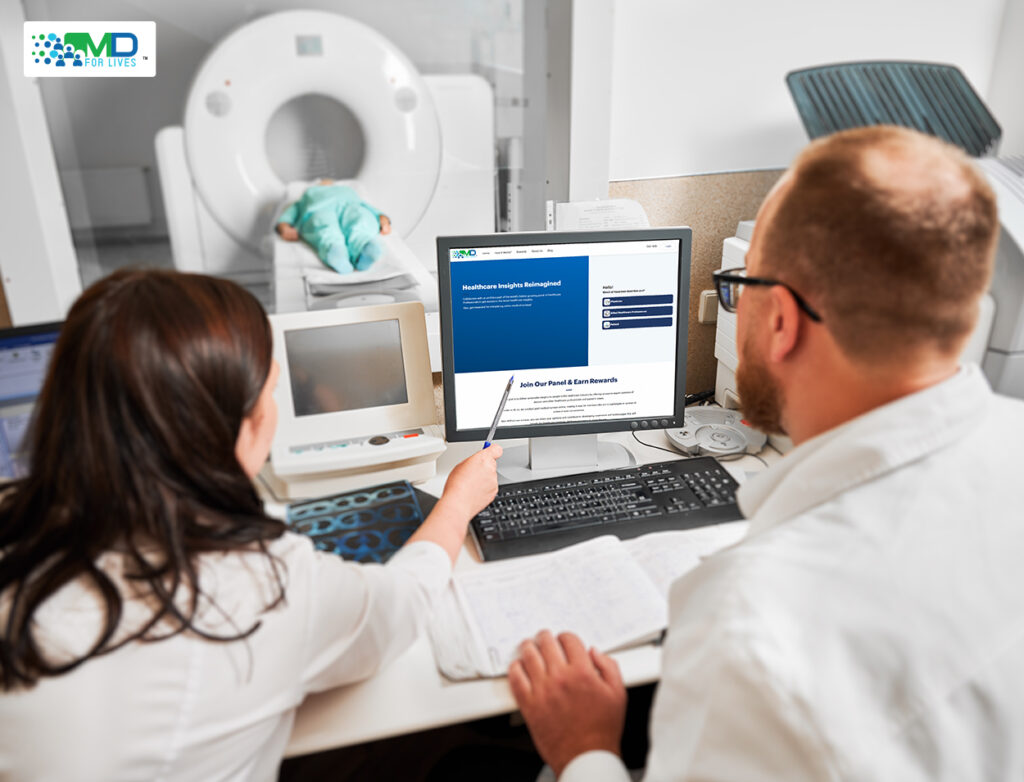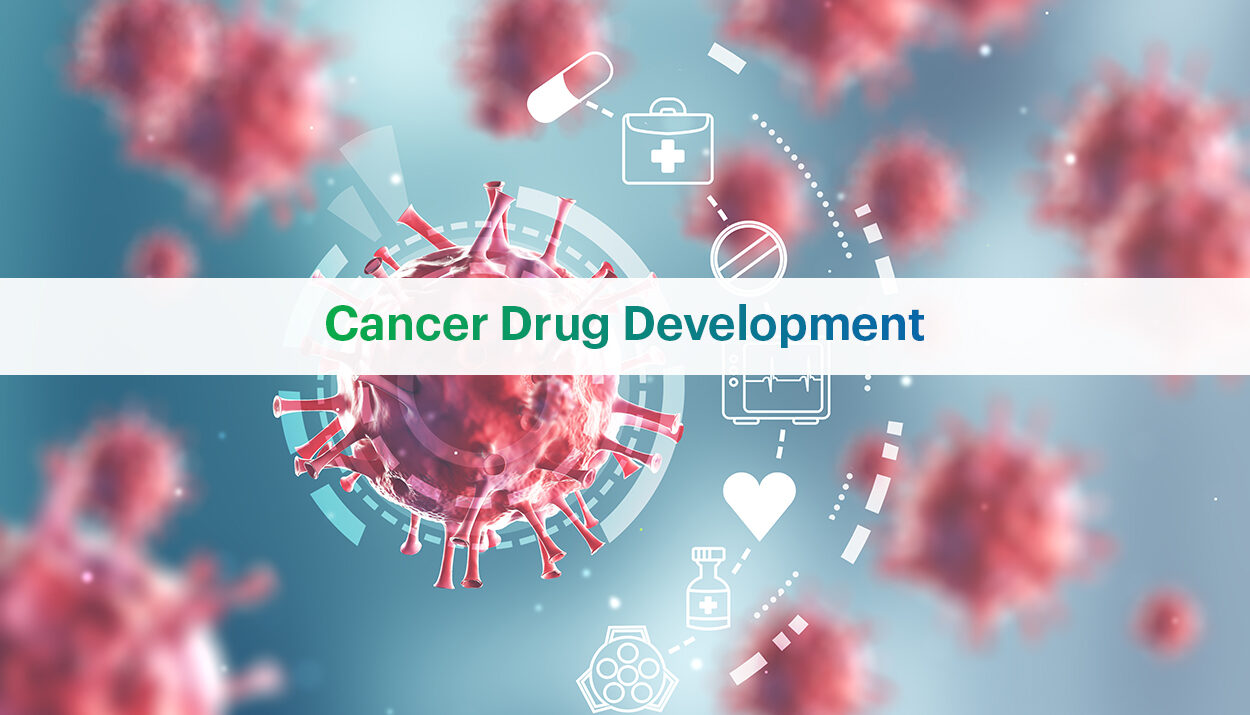“Precision Oncology is the new best weapon to defeat cancer.” This particular statement from Sizhen Wang, Chief Executive of Genetron Health, would seem preposterous even if it were a decade ago. However, it’s 2025, and significant innovations have emerged in the field of Oncology. Precision Oncology is one of the latest developments that involves a study of the molecular characteristics of cancer cells in the human body. This approach makes way for targeted treatment and specialized cancer drug development, which promises better patient outcomes. But before real-world applications, it is crucial to understand the real-world impact of these therapies. That’s where Oncologists come in to save the day. Their hands-on clinical experience helps researchers and pharma brands come up with newer treatment strategies that contribute to advanced cancer care. Anti-cancer drug development surveys act as a vital channel that helps connect such insights with KOLs and pharma brands to carry out pharmaceutical innovations.
That being said, let’s explore this blog and find out the many reasons why an Oncologist’s feedback matters in cancer drug development surveys.
Cancer Drug Development and the Role of Oncologists

Despite the advancements in treatment, WHO still classifies cancer as one of the leaders for global death!
Such stats reflect the necessity of advanced cancer drug design and treatment development, which requires the involvement of Oncologists.
Why so? Here are the reasons-
1. They help assess the efficacy of new drugs, their side effects, and real-world applications
Oncologists directly interact with their patients. This firsthand approach helps them assess the efficacy of cancer drugs and treatments across diverse cancer types and stages.
Along with it, they are also able to observe whether their patients are experiencing any side effects from the newfound drugs. Not just that, but their guidance on the real-world application of these drugs also helps pharma brands tailor their strategies for overall patient well-being.
2. They help identify unmet patient needs and gaps in existing treatment procedures
Since these professionals work in close interaction with patients, they’re able to gain a deep understanding of their unmet needs. They can effectively identify the areas where treatments fall short and find out issues with existing treatment practices. This translates to rich insights, which researchers and healthcare organizations use to verify where innovations are needed.
Let’s take the instance of the game-changing immune checkpoint inhibitors like Pembrolizumab or Nivolumab. These are drugs that effectively target the PD-1 (a checkpoint protein on immune cells, better known as ‘T cells’). When Oncologists shared their feedback about these through surveys, it became clear that not every patient responded the same way.
This ultimately led to further digging on PD-L1 biomarkers, which translated to more personalized treatment approaches.
Cancer Drug Development – How Surveys Capture Valuable Oncologist Insights
Now, let’s take a look at how drug development surveys help channelize the valuable insights of Oncologists for developing advanced treatment solutions.
 So, clinical trials form the foundation of any drug development. However, these trials occur in highly controlled environments with specific patient groups. Hence, the results might lack the real-world efficacy or potential side effects of the newfound drugs.
So, clinical trials form the foundation of any drug development. However, these trials occur in highly controlled environments with specific patient groups. Hence, the results might lack the real-world efficacy or potential side effects of the newfound drugs.
It is at this point where cancer drug development surveys come into action!
- It helps gather real-world data
Compared to clinical trials, surveys help bring together a wider range of Oncologists from across the globe, treating diverse patient groups in practical settings. This helps researchers gather valuable feedback and insights that are lacking in controlled settings. Eventually, this approach offers a more comprehensive outlook on the efficacy of cancer drug development in everyday practice.
- It serves as a platform where professionals offer critical insights on drug tolerability and patient response
Cancer-related surveys act as a platform where Oncologists from across the globe offer critical insights based on their experience with new drugs. They share their feedback on how well the patients are tolerating the drugs and whether they’re experiencing any side effects or not. Such detailed information stands as a vital requirement to enhance the existing treatment protocols and identify areas for further drug discovery.
The evolution of CAR-T Cell Therapy is a striking instance of how surveys helped in a breakthrough in treating solid tumors. How? Well, it’s only after professionals identified the prevalence of Cytokine Release Syndrome (CRS) that researchers came up with better treatment strategies. In fact, the use of Tocilizumab to control side effects was the result of this direct feedback loop.
The Impact of Oncologist Participation in Surveys

While Oncology drug development and discovery are indeed necessary, the active participation of Oncologists has a widespread impact on overall cancer care.
Here are some of the tangible impacts of an Oncologist’s participation in surveys:
1. Their feedback helps refine clinical trials for the development of safer and more effective drugs
The practical feedback of an Oncologist has a direct impact on the design and execution of clinical trials. Their keen observation on drug efficacy and potential side effects helps researchers refine cancer treatment protocols effectively.
This translates to future trials becoming more targeted, and leads to the development of safer and more effective drugs.
2. Their insights help pharma brands and healthcare institutions navigate regulatory hurdles
Oncologists work closely with patients and are therefore well aware of the benefits and drawbacks of the drugs. Hence, the insights that they share on surveys on the practicality and safety of the drugs help strengthen approval applications.
This ultimately pushes pharma companies to accelerate the entire procedure of drug development so that better treatments become available for patients.
Challenges in Engaging Oncologists for Surveys
The role of an Oncologist is irrefutable in the entire process of anti-cancer drug development. But, for that to happen, they need to actively participate in oncology-related surveys.
However, there are a handful of challenges that stand as a hurdle to their active participation. Let’s take a closer look:
1. They have demanding schedules
It is normal for a general physician to have a busy schedule. So, in that context, we can assume that a specialist professional, like an Oncologist, has a more demanding schedule. The massive amount of patients, appointments, and administrative tasks leaves very little spare time for them to engage in surveys. That’s one of the very first challenges of an Oncologist’s survey participation.
2. Their concerns regarding data confidentiality and survey credibility
Data confidentiality is a mandatory requirement, especially in the present day and age. On top of that, it is also one of the main concerns of healthcare professionals, due to which they refrain from taking part in surveys. They deal with highly sensitive data and information, and therefore, need assurance about response anonymity and data protection.
Along with that, the credibility of the survey also stands as a point of concern. The professionals need to make sure that the surveys are unbiased and that their inputs will genuinely help pharma R&Ds. If a survey lacks credibility and purpose, professionals tend to grow reluctant to participate.
3. Minimal incentives and zero recognition
Owing to the major time constraints and professional demands, it’s very natural for these professionals to expect effective compensation for survey participation.
Now, the compensation need not be monetary at all times! Sometimes, it can involve access to early research opportunities or opportunities for professional development via networking. Or sometimes, it can just be an acknowledgement of their valuable contribution. This encourages the healthcare professionals to take part in surveys, which translates to advanced cancer drug development.
How MDForLives Supports Oncologists in Surveys
MDForLives is one of the most reputable survey platforms operating across 40+ countries. Our secure and rewarding survey opportunities serve as our USPs and encourage Oncologists to register on our platform to take part in cancer-related surveys.
Wait, that’s just the beginning! Our platform is trusted by a community of a whopping 1.2 million healthcare professionals from around the world! Along with that, we work in close collaboration with industry experts, KOLs, and major pharma brands.
So, as a practicing Oncologist, you can rest assured that your insights and feedback are actually contributing to anti-cancer drug discovery.
What’s best about us is our intuitive and user-friendly interface, which makes survey participation on our platform nothing less than a cakewalk! Furthermore, our flexible approaches make it easier for busy professionals to fit surveys into their daily schedules. This serves as an encouragement for Oncologists to sign up on our platform and start taking surveys regularly.
Share What You Know. Shape What Comes Next.
The American Cancer Society states cancer to be the second-leading cause of death in the U.S. Treatment advancements are the only way to reduce the overall mortality rates associated with this disease, and that’s possible only when Oncologists actively participate in cancer drug development.
 If you think it through, everything starting from precision oncology, to CAR-T cell therapy has emerged due to a collaborative effort between Oncologists and pharma R&Ds. Therefore, their insights have indeed brought about enhanced treatment solutions that are offering more personalized approaches to cancer treatment!
If you think it through, everything starting from precision oncology, to CAR-T cell therapy has emerged due to a collaborative effort between Oncologists and pharma R&Ds. Therefore, their insights have indeed brought about enhanced treatment solutions that are offering more personalized approaches to cancer treatment!
So, if you’re a practicing Oncologist, join our platform today and start taking surveys to be a valuable contributor to advanced cancer care solutions.
Read about
Camptothecin – Anti Cancer Drug
Empirical vs Preemptive treatment
FAQs
-
How do oncologists decide treatment?
Oncologists generally decide treatment strategies based on the following elements-
– The type of cancer
– The stage
– The genetic makeup of the patient
– The overall health condition of the patient
– The preferences of the patient
-
Why are oncologists’ insights important in cancer drug development?
Oncologists happen to work closely with patients in a real-world clinical setting. Therefore, their practical experience with drug efficacy, side effects, and patient responses serves as an invaluable contribution to pharma R&D. This leads to further refinement of treatments and development of enhanced drugs.
-
How do surveys help improve cancer drug research?
Surveys help gather real-world data on overall drug performance and tolerability from across the world. This eventually helps enhance drug research and formulations, which leads to better patient care.
-
What kind of questions are typically included in oncologist surveys?
You will come across questions regarding drug efficacy, side effects, treatment procedures, and gaps in existing clinical needs. Along with it, you may also find opinions on the development of drugs in Oncology.
-
Are oncologist survey responses confidential?
Yes indeed! Oncologists’ responses contain sensitive data, and therefore, reputable survey platforms like us at MDForLives strictly adhere to CCPA and GDPR to ensure data confidentiality.
-
How can oncologists participate in surveys effectively?
Oncologists can register for authentic survey platforms, as that’s the first step for survey participation. Along with that, their genuine responses and perspectives are the crucial elements that ensure their effective participation.

MDForLives is a global healthcare intelligence platform where real-world perspectives are transformed into validated insights. We bring together diverse healthcare experiences to discover, share, and shape the future of healthcare through data-backed understanding.





